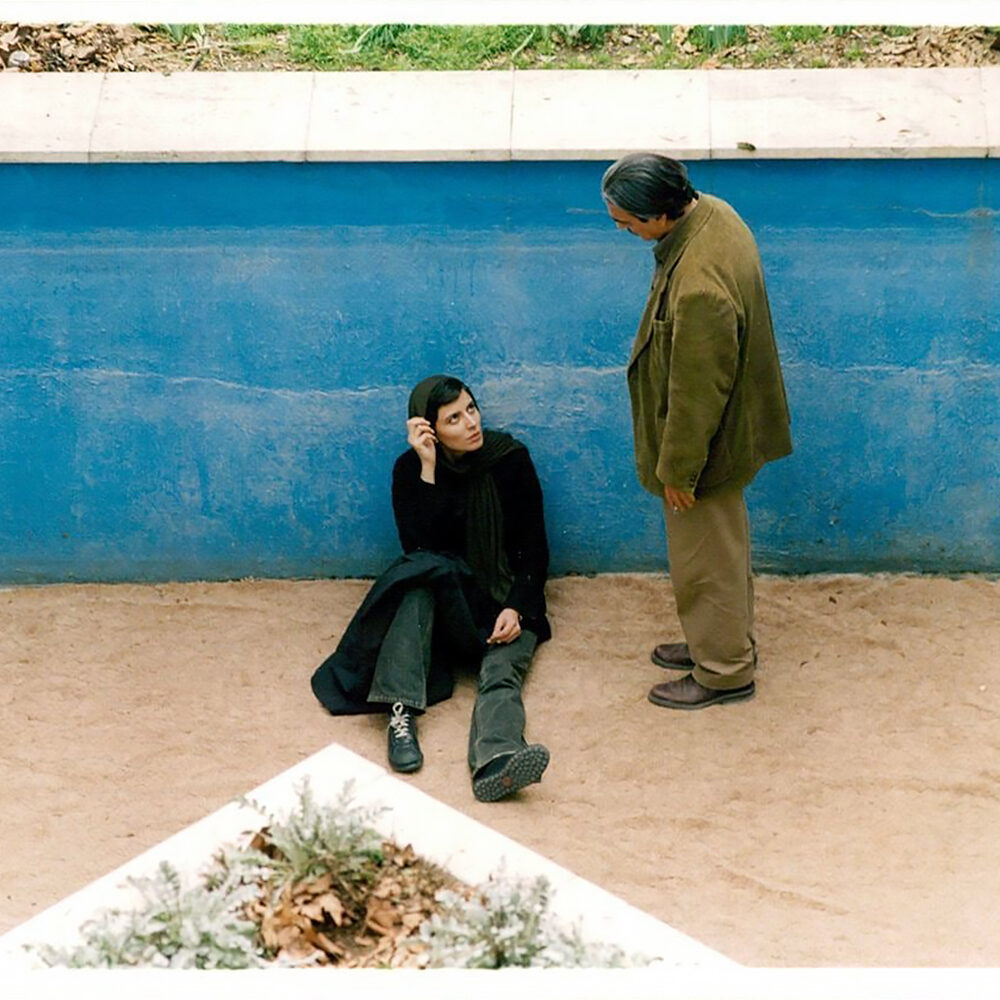NEWS

Portrait of a Lady Far Away By Leslie Felperin
Actor-turned-helmer Ali Mosaffa’s dreamlike feature debut “Portrait of a Lady Far Away” reps a refreshing departure from the usual super-stripped-down naturalism and rural settings of most fest product from Iran, even if talents on- and offscreen have close connections to some of the country’s best-known names. Story follows a melancholy professional (Homayoun Ershadi, “A Taste of Cherry”) when a seemingly random phone call from a potential suicide instigates a nighttime adventure around cosmopolitan Teheran, stirring up buried memories of lost love. “Portrait”’s sparse emotional brushwork may limit its general aud appeal, but exhibition at further fests is a dead cert.
Actor-turned-helmer Ali Mosaffa’s dreamlike feature debut “Portrait of a Lady Far Away” reps a refreshing departure from the usual super-stripped-down naturalism and rural settings of most fest product from Iran, even if talents on- and offscreen have close connections to some of the country’s best-known names. Story follows a melancholy professional (Homayoun Ershadi, “A Taste of Cherry”) when a seemingly random phone call from a potential suicide instigates a nighttime adventure around cosmopolitan Teheran, stirring up buried memories of lost love. “Portrait”’s sparse emotional brushwork may limit its general aud appeal, but exhibition at further fests is a dead cert.
In his darkly lit apartment, lonely middle-aged architect Ahmed (Ershadi) takes a webcam call from his teenage son Ali (actor’s name untranslated in credits), and a voicemail from his cantankerous father. Another message from an unknown woman explains that she’s going to end it all that night and that she called his number at random to say goodbye cruel world, but that she’s leaving the keys to her apartment under the mat. Auds familiar with Abbas Kiarostami’s “A Taste of Cherry” will immediately spot irony of helmer Mosaffa having cast Ershadi, who played a man bent on suicide in latter pic.
Later that night, Ahmed makes his way to the would-be suicide’s apartment, and lets himself in with the aforementioned keys. Although he finds no corpse, an unnamed young woman (Leila Hatami, from “Deserted Station”), seemingly a friend of the suicide who also received a midnight call, shows up at the door.
The two decide to go look for the missing woman, a journey that encompasses hospitals, encounters with fortune tellers, Ahmed’s childhood home (now a building site), and an art show at a makeshift gallery where a blown up portrait of the woman Ahmed’s traveling with hangs side-by-side with a makeshift screen on which is projected an old film of an Afghani woman singer. Both portrait and screen are torched as part of the installation.
Eventually, it transpires that the Afghani singer seen at the gallery, Kharshid, was an old flame of Ahmed’s who once attempted committed suicide herself, and who is seen as a much older woman (played by Zahra Hatami) in a video remembering her youthful stardom. There’s a suggestion that the young female companion, who turns out to be the girl who made the call, could also be that lost lover’s spirit, or maybe a total figment of Ahmed’s imagination. One way or another, levels of reality are none-too-distinct here.
Influence of Kiarostami is unmistakeable, from the use of cars as setting, to the self-reflexive focus on film, to the very fact that the penumbral lensing comes courtesy of sometime Kiarostami DP Homayoun Payvar (“Life, and Nothing More…”, “A Taste of Cherry”). However, the young director’s oneric, heightened style is more reminiscent nearer Eastern auteurs, such as Andrei Tarkovsky (especially “Mirror” and “Nostalgia”), and to a certain extent Theo Angelopoulus (“Eternity and a Day”), even though the political and historical allusion that threads through their work is lower in the mix here.
Thesping by stately Ershadi and eerily beautiful Hatami holds pic’s center of gravity throughout, and impresses all the more given how much their characters had the potential to play as ciphers.
Layered use of sound by Fadin Saheb-Zamani complements atmospheric score by Peyman Yazdanian to create a complex soundscape that compliments pic’s lush visuals.
